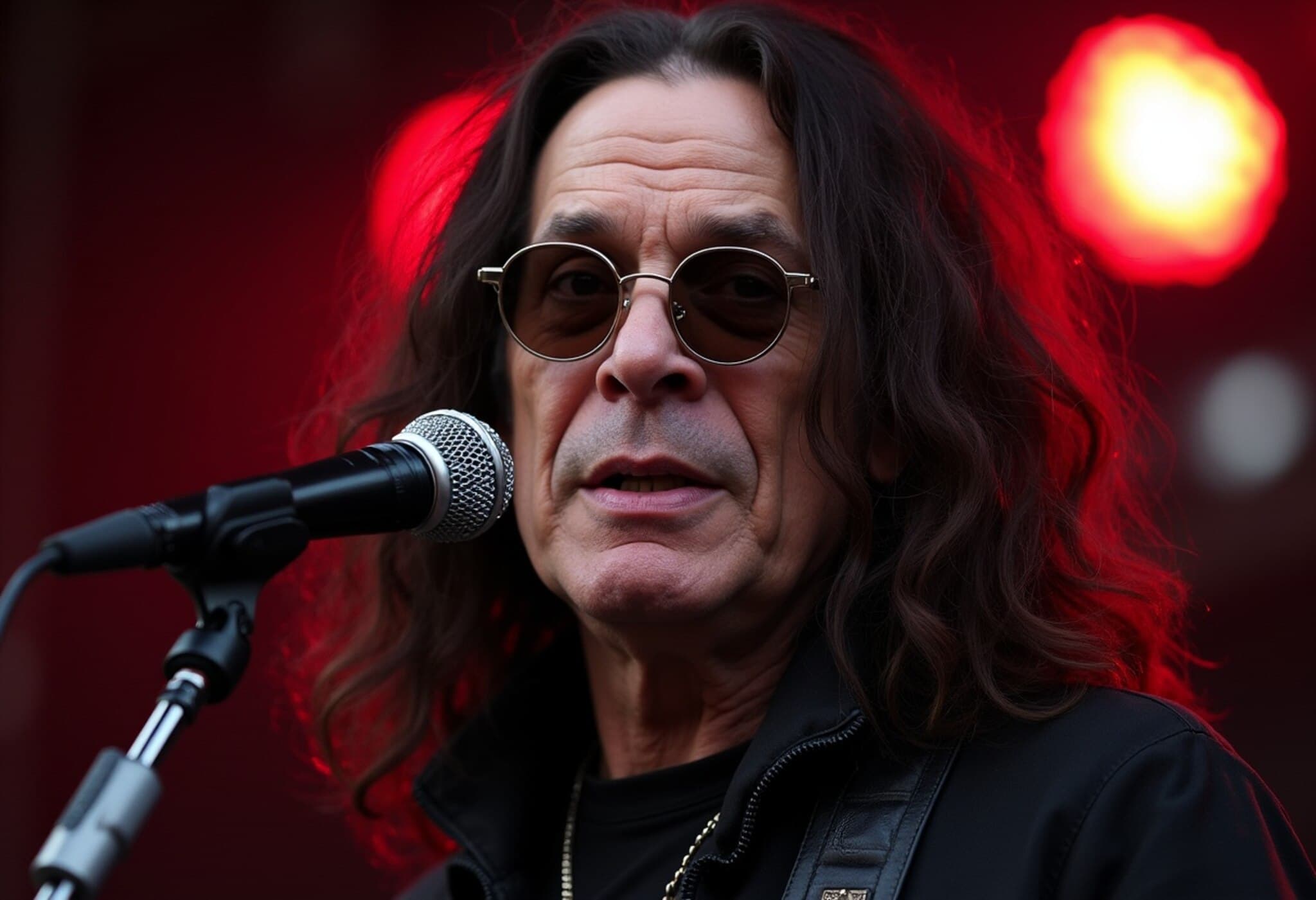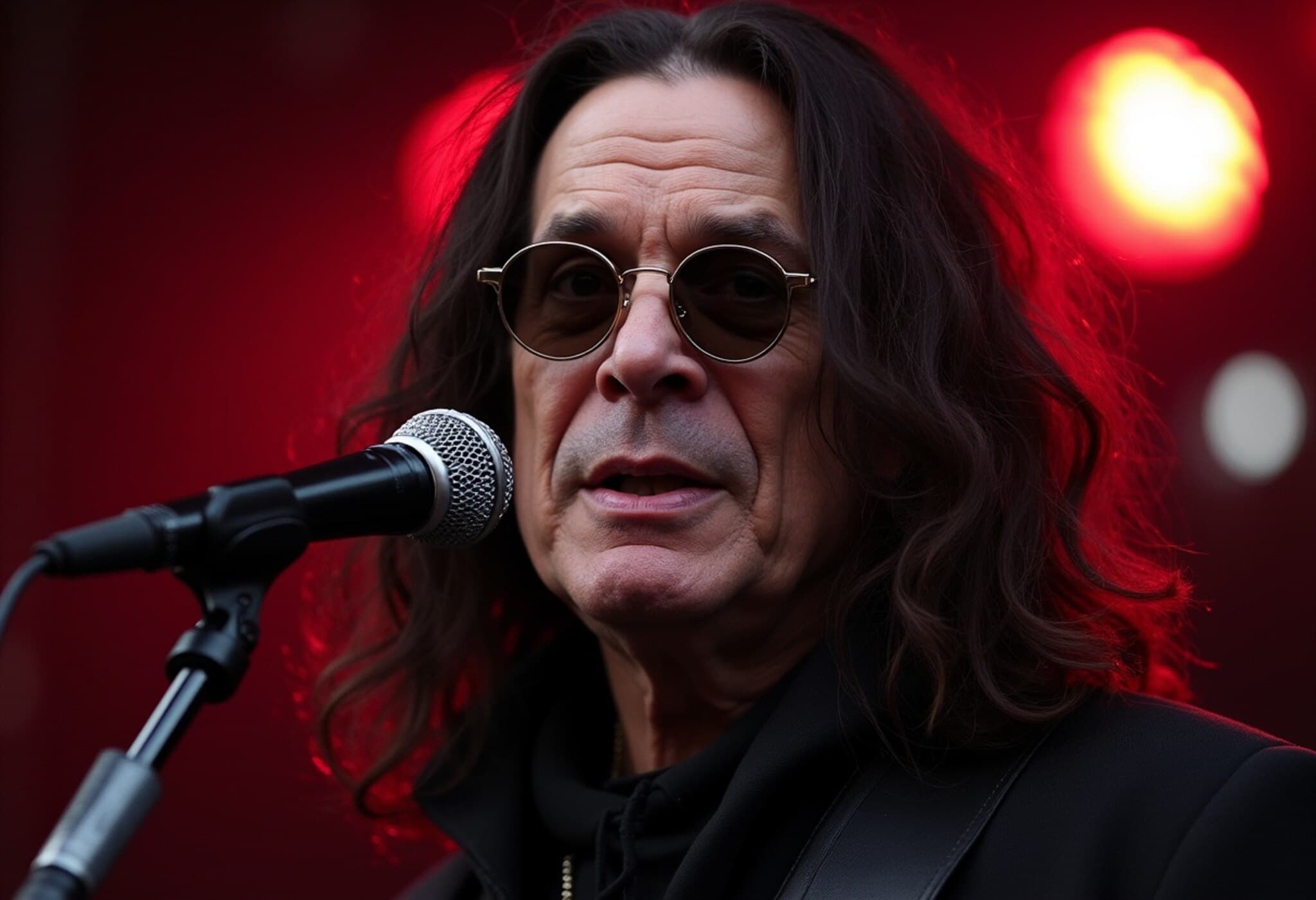Ozzy Osbourne, The Prince of Darkness, Passes Away at 76
Ozzy Osbourne, the legendary frontman of Black Sabbath and a towering figure in the world of heavy metal, has died at the age of 76. His death comes just weeks after a highly emotional farewell concert that marked the end of an era in rock music. The British singer, renowned for his iconic stage presence and considerable influence on the metal genre, had been courageously contending with Parkinson’s disease since publicly revealing his diagnosis in 2020.
A Life Defined by Rock and Reinvention
Osbourne’s journey through music was as memorable as it was groundbreaking. From his early days as the lead vocalist of Black Sabbath—often credited with pioneering heavy metal—to his explosive solo career, he reshaped the soundscape of rock music. With Sabbath’s self-titled 1969 debut album, Osbourne helped create a darker, heavier tone that set the blueprint for metal bands that followed for decades.
The 1970 album Paranoid propelled the band to iconic status with classics like "Iron Man" and "War Pigs," songs that remain anthems of the genre. Despite his immense talent, Osbourne’s personal struggles, including substance abuse and erratic behaviour, led to his dismissal from the band in 1979. Yet, this setback only ignited his solo career, where albums such as Blizzard of Ozz and Diary of a Madman solidified his status as a heavy metal icon. Tracks like "Crazy Train" and "Flying High Again" have become timeless fan favorites.
From Controversy to Cultural Icon
Known as much for his dark, theatrical antics on stage—including the infamous incident of biting the head off a bat—as for his distinctive voice, Osbourne’s legacy is complex. Beyond the rebellious public persona, many discovered a more intimate, caring side through the reality TV show The Osbournes, which gave audiences a candid glimpse of his family life and vulnerabilities. This duality contributed to his enduring appeal across generations.
Farewell and Legacy: A Concert to Remember
In July 2025, Ozzy reunited with original Black Sabbath members for an emotionally charged farewell concert attended by tens of thousands of fans and fellow musicians — including celebrated acts like Metallica, Guns N’ Roses, and Tool. The show was a testament to his enduring impact and the respect he commanded in the music community. Phil Anselmo, frontman of Pantera, remarked, "I wouldn’t be here without Black Sabbath," underscoring Osbourne’s deep influence.
Health Battles and Final Moments
Osbourne’s final years were marked by health challenges, chiefly his battle with Parkinson’s disease, a diagnosis he bravely shared with the world amid his passion for music. Surrounded by family during his last moments, the singer left behind a legacy that transcends his health struggles, reminding fans and musicians alike of the power of resilience and artistic reinvention.
Expert Commentary: The End of an Era in Rock and American Cultural Impact
From a policy and cultural perspective, Osbourne’s influence extended beyond music into American popular culture, symbolizing rebellion, counterculture, and resilience against personal and societal challenges. His role helped shape the identity and economic dynamics of the heavy metal industry, which remains a significant segment of the American music economy.
His death invites reflection on the importance of supporting aging artists amid health challenges, raising questions about artist healthcare and legacy preservation — issues gaining attention in American cultural policy discussions.
What Lies Ahead for Heavy Metal?
Osbourne’s passing prompts the music world to ponder the future trajectory of heavy metal. As one of the genre’s architects exits the stage, younger bands are stepping in to evolve the sound. His work continues to inspire innovation while challenging the industry to preserve its roots amid shifting cultural landscapes.
Editor’s Note
Ozzy Osbourne’s death marks a poignant moment in music history, closing a chapter that defined heavy metal’s bold identity. Beyond his legendary voice and theatrics, his story is one of perseverance through adversity, reminding us of the human behind the icon. As fans worldwide mourn, questions about artist support systems, health awareness in the entertainment industry, and the preservation of musical heritage come to the forefront. Osbourne’s legacy is not just the music he created, but the cultural and emotional imprint he leaves behind.












